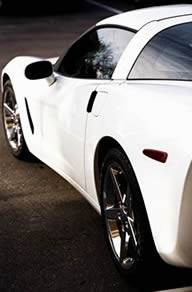
• Featured Specialists •
| Upton's Auto Body in Rogers, AR |
| |
| Blue Water Express Wash LLC in Dothan, AL |
| |
| Auto Brite in Gaffney, SC |
| |
| Auto Trim Design in Yucca Valley, CA |
| |
| Southport Auto Body Inc in Saint Paul, MN |
| |
| Barcelona Sporting Goods in Houston, TX |
| |
| MTZ Machine Shop in Houston, TX |
| |
| Caffey's Auto Glass in Abilene, TX |
| |
| Cactus Satellite in Scottsdale, AZ |
| |
| Plano Trabuco Shell in Trabuco Canyon, CA |
| |
| Squeaky Clean Carwash in Conneaut Lake, PA |
| |
| Mason's Diesel Inc in Sewell, NJ |
| |
| American Engine Instalations in Austin, TX |
| |
| Sutton Towing, Inc. in Ontario, CA |
| |
| K & K Machining in Elkton, VA |
|
|
Diesel Mechanics and Shops Directory
There are two main differences between a diesel engine and a gasoline engine. A gasoline engine takes in a mixture of gas and air, compresses it and ignites the mixture with a spark. A diesel engine takes in just air, compresses it and then injects fuel into the compressed air. The heat of the compressed air lights the fuel spontaneously. A higher compression ratio of the diesel engine leads to better efficiency. In a fuel injection system the fuel is injected just before the intake stroke at the intake valve. Diesel engines use direct fuel injection and have no spark plugs.
The air it takes in is compressed and the fuel is injected directly into the cylinder where the heat caused by the air compression ignites the fuel. In earlier times this meant that it exploded and expanded very quickly, making a noisy engine. Compared to gasoline-powered vehicles, diesels are more fuel efficient, and they can you much farther on a tank of fuel than their gasoline counterparts. Diesel engines produce more torque, and they tend to be more durable. They don't need an electric ignition system, which reduces their complexity. In the United States and Canada, diesel engines are most commonly found in trucks and buses.
Advanced Search:
|
